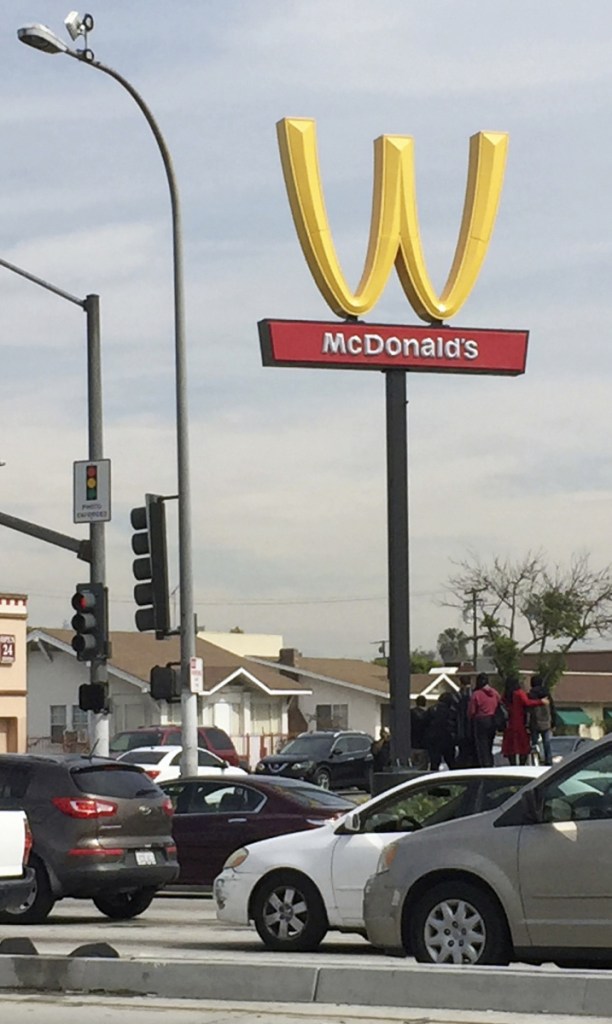Fast-food behemoth McDonald’s is temporarily flipping its iconic logo and switching its packaging in some U.S. locations – a move meant to celebrate International Women’s Day, the company says.
But the stunt has rung hollow to many of the company’s critics, who say McDonald’s has systematically advanced policies that disadvantage its female employees. In particular, the company has fought a sustained battle against increases to the minimum wage, an issue that affects women disproportionately.
According to the Labor Department, women make up nearly two-thirds of all hourly minimum-wage earners. Recent research suggests that they benefit most from increases in that minimum.
“Hey McDonald’s,” tweeted Nathan Lerner, a progressive activist. “Maybe instead of a cheap PR stunt where you make the ‘M’ a ‘W’ to ‘support’ women, you do something real – like paying your workers a living wage.”
This is far from the first time that activists and critics have called on McDonald’s to pay its employees more. The chain, which employs 375,000 people in the U.S., is a regular target of the Fight for $15 campaign, which advocates for higher wages, and has found its shareholder meetings disrupted by minimum-wage activists.
It is also not the first time that women’s groups have identified the minimum wage as a feminist issue. The National Women’s Law Center, a nonprofit advocacy group, has argued that raising that minimum is key to closing the gender pay gap and advancing the economic interests of women.
“Labor rights are women’s rights,” Carmen Perez, co-chair of the Women’s March, told The Washington Post in May ahead of a march on the McDonald’s in downtown Chicago. “The link between the gender justice and labor justice movements is strong – but often unacknowledged.”
Despite these arguments, McDonald’s and other fast-food chains have resisted calls to provide a so-called living wage – and frequently have fought against such raises. While McDonald’s has not commented publicly on this fight, the chain is a member of the National Restaurant Association, a trade group that has lobbied against wage increases in more than 30 states.
The association argues that such increases would strain franchisees’ margins and, eventually, put tens of thousands of people out of work. That includes thousands of women, who make up 52 percent of all restaurant workers – and 60 percent of McDonald’s managers in the U.S., according to the company.
In a prepared statement, spokeswoman Lauren Altmin said McDonald’s is proud of that statistic and the role that women play at McDonald’s. She also said the company had worked hard to improve benefits for workers.
“We recently enhanced a number of employee benefits, including an increase in our maternity and paternity leave policy for corporate and company-owned restaurants,” she said. “And McDonald’s provides tuition assistance, academic advising services, English language courses and more through our Archways to Opportunity program.”
On Twitter, however, the reception remains mixed. The most popular tweet on the subject – circulated far more widely than McDonald’s own Women’s Day message – mocks the company for not embracing more workplace policies designed to help women.
Some critics also have repurposed an old insult meant to describe women’s outreach that is lazy, self-serving or presumptive.
They call it, fittingly, “McFeminism.”
Send questions/comments to the editors.



Comments are no longer available on this story